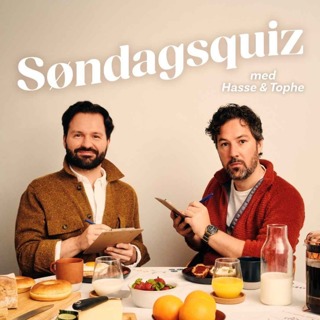
Episode 223 - Generality and Generalization
When you hear the term “generality”, you probably think of stimulus generalization. Or maybe it’s response generalization. Actually, “generality'“ doesn’t really mean either of those terms. Well, not exactly, though perhaps a little bit. But we’re missing the point. Which is improving our ability to develop meaningful treatments which support skill development across environments. And that’s generalization. Though it doesn’t quite capture the idea of generality. Look, it’ll make more sense after you listen to the episode on these similar—but not the same—terms. This episode is available for 1.0 LEARNING CEU. Articles discussed this episode: Stokes, T.F. & Baer, D.M. (1977). An implicit technology of generalization. Journal of Applied Behavior Analysis, 10, 349-367. doi: 10.1901/jaba.1977.10-349 Johnston, J.M. (1979). On the relation between genearlization and generality. The Behavior Analyst, 2, 1-6. doi: 10.1007/BF03391833 If you're interested in ordering CEs for listening to this episode, click here to go to the store page. You'll need to enter your name, BCBA #, and the two episode secret code words to complete the purchase. Email us at abainsidetrack@gmail.com for further assistance.
23 Nov 20221h 16min

Episode 222 - Grab Bag: Triple Deuces
Diana: I need the reason. Don’t say money. Why do this? Rob: Why not do it? Because yesterday I walked out of the conference after losing four hours of my life and you’re cold-researching “Teen Beat” cover topics. Because the house always wins. Play long enough, you never change the contingencies, the house takes you. Unless, when that perfect article comes along, you bet behavior analysis podcast, and then you take the house. Diana: Been practicing that speech, have you? Rob: Little bit. Did I rush it? Felt like I rushed it. Diana: No, it was good, I liked it. “Teen Beat” thing was harsh. This episode is available for 1.0 LEARNING CEUs Articles discussed this episode: Capalbo, A., Miltenberger, R.G., & Cook, J.L. (2022). Training soccer goalkeeping skills: Is video modeling enough? Journal of Applied Behavior Analysis, 55, 958-970. doi: 10.1002/jaba.937 Strickland, M.A., & Kohn, C.S. (2021). Behavioral skills training to teach college students to free-pour standard servings of alcohol. Behavioral Interventions, 37, 673-689. doi: 10.1002/bin.1873 Normand, M. P. & Donohue, H.E., (2022). Behavior analytic jargon does not seem to influence treatment acceptability ratings. Journal of Applied Behavior Analysis., 55, 1294-1305. doi: 10.1002/jaba.953 If you're interested in ordering CEs for listening to this episode, click here to go to the store page. You'll need to enter your name, BCBA #, and the two episode secret code words to complete the purchase. Email us at abainsidetrack@gmail.com for further assistance.
16 Nov 20221h 4min

Episode 221 - Tracker Training w/ Ryan Atkinson
NOTE: The original file was missing one of the code words. The new file should resolve this. Apologies to folks for the mistake. Remember when you started your first practicum? Remember the fun of filling out your fieldwork tracker? Of course you don’t because no one has EVER had fun filling that thing out. This week, we at least try to make it easier to complete by reviewing research conducted by Diana, Jackie, and guest (and former student), Ryan Atkinson to teach practicum students the ins and outs of recording their time on-task in pursuit of their behavior analyst certification. This episode is available for 1.0 LEARNING CEU. Articles discussed this episode: Parry-Cruwys, D., Atikinson, R., & MacDonald, J. (2021). Teaching graduate students to identify and adhere to practicum requirements. Behavior Analysis in Practice, 15, 433-442. doi: 10.1007/s40617-021-00571-x Atkinson, R., Parry-Cruwys, D., & MacDonald, J. (2022). Training graduate students to enter fieldwork data using asynchronous online instruction. Behavior Analysis in Practice. doi: 10.1007s40617-022-00732-6 If you're interested in ordering CEs for listening to this episode, click here to go to the store page. You'll need to enter your name, BCBA #, and the two episode secret code words to complete the purchase. Email us at abainsidetrack@gmail.com for further assistance.
9 Nov 20221h 4min

November 2022 Preview
LIVE from St. Charles, MO, it’s ABA INSIDE TRACK! With musical guest the Smashing Pumpkins. Well, ok, they’re not coming on the show this month. But we do have a plethora of other friends joining us to discuss everything from tracker training to teleconsultation including Diana and Jackie’s former student and collaborator, Ryan Atkinson and tech-meister, Dr. Aaron Fischer. Plus, the return of the grab bag and a detailed discussion of generality…or is it generalization? Articles for November 2022 Tracker Training w/ Ryan Atkinson Parry-Cruwys, D., Atkinson, R., & MacDonald, J. (2021). Teaching graduate students to identify and adhere to practicum requirements. Behavior Analysis in Practice, 15, 433-442. doi: 10.1007/s40617-021-00571-x Atkinson, R., Parry-Cruwys, D., & MacDonald, J. (2022). Training graduate students to enter fieldwork data using asynchronous online instruction. Behavior Analysis in Practice. doi: 10.1007s40617-022-00732-6 The Grab Bag Capalbo, A., Miltenberger, R.G., & Cook, J.L. (2022). Training soccer goalkeeping skills: Is video modeling enough? Journal of Applied Behavior Analysis, 55, 958-970. doi: 10.1002/jaba.937 Strickland, M.A., & Kohn, C.S. (2021). Behavioral skills training to teach college students to free-pour standard servings of alcohol. Behavioral Interventions, 37, 673-689. doi: 10.1002/bin.1873 Normand, M. P. & Donohue, H.E., (2022). Behavior analytic jargon does not seem to influence treatment acceptability ratings. Journal of Applied Behavior Analysis., 55, 1294-1305. doi: 10.1002/jaba.953 Generality and Generalization Stokes, T.F. & Baer, D.M. (1977). An implicit technology of generalization. Journal of Applied Behavior Analysis, 10, 349-367. doi: 10.1901/jaba.1977.10-349 Johnston, J.M. (1979). On the relation between genearlization and generality. The Behavior Analyst, 2, 1-6. doi: 10.1007/BF03391833 Teleconsultation w/ Dr. Aaron Fischer King, H.C., Bloomfield, B.S., Wu, Shengtian, & Fischer, A.J. (2022). A systematic review of school teleconsultation: Implications for research and practice. School Psychology Review, 51, 237-256. doi: 10.1080/2372966x.2021.1894478 King, H.C., Bloomfield, B., Fischer, A.J., Dart, E., & Radley, K. (2021). A comparison of digital observations of students from video camberas and aerial drones. Journal of Educational and Psychological Consultation, 31, 360-381. doi: 10.1080/10474412.2020.1744446 Bloomfield, B.S., Fischer, A.J., Dove, M., Clark, R.R., & Fife, M. (2021). Parent teleconsultation to increase bites consumed: A demonstration across foods for a child with ARFID and ASD. Behavior Analysis in Practice, 14, 913-926. doi: 10.1007/s40617-021-00586-4
2 Nov 20228min

Episode 220 - Facilitated Communication
While science has researched the effectiveness of many augmentative and assistive communication methods, one disproven, pseudoscientific technique just keeps refusing to stay in the dustbin of history: Facilitated communication. This week, we go back to the 90s to review how facilitated communication stole the voices of people with disabilities, the research that originally kicked facilitated communication to the curb, and why it remains important to guard against FC’s seemingly never-ending resurgence. Plus, Rob fights city hall poorly. Also, if you’ve never seen it, be sure to watch Prisoners of Silence, a documentary from 1992 that we all love and talk about a TON! This episode is available for 1.0 LEARNING CEU. Articles discussed this episode: Travers, J.C., Tincani, M.J., & Lang, R. (2014). Facilitated communication denies people with disabilities their voice. Research and Pactice for Persons with Severe Disabilities, 39, 195-202. doi: 10.1177/1540796914556778 Eberlin, M., McConnachie, G., Ibel, S., & Volpe, L. (1993). Facilitated communication: A failure to replicate the phenomenon. Journal of Autism and Developmental Disorders, 23, 507-530. doi: 10.1007/BF01046053 Montee, B.B., Miltenberger, R.G., & Wittrock, D. (1995). An experimental analysis of facilitated communication. Journal of Applied Behavior Analysis, 28, 189-200. doi: 10.1901/jaba.1995.28-189 Roane, H.S., Kadey, H.J., & Sullivan, W.E. (2019). Evaluation of word recognition following typing produced through facilitated communication. Journal of Applied Behavior Analysis, 52, 1107-1112. doi: 10.1002/jaba.587 If you're interested in ordering CEs for listening to this episode, click here to go to the store page. You'll need to enter your name, BCBA #, and the two episode secret code words to complete the purchase. Email us at abainsidetrack@gmail.com for further assistance.
26 Okt 20221h 15min

Episode 219 - A Call to Action on Rekers and Lovaas w/ Dr. Sarah Campau + Dr. Matthew Capriotti (feat. Alan Haberman)
In 2020 the Journal of Applied Behavior Analysis posted an Expression of Concern regarding Rekers & Lovaas (1973) as a step in acknowledging behavior analysis’s complicity in the pseudoscience of conversion therapy. This week we’re joined by special guests, Drs. Sarah Campau and Matthew Capriotti, as well as Book Club Guy, Alan Haberman, to talk about what comes next. We review the controversy over the original paper, discuss public policy around supporting the LGBTQ+ community, and start planning how behavior analysis can kickstart new research that benefits sexual and gender minorities. For more on the history of conversion therapy, Dr. Campau suggests the UnErased podcast. This episode is available for 1.0 LEARNING CEU. Articles discussed this episode: Conine, D.E., Campau, S.C., & Petronelli, A.K. (2022). LGBTQ+ conversion therapy and applied behavior analysis: A call to action. Journal of Applied Behavior Analysis, 55, 6-18. doi: 10.1002/jaba.876. Capriotti, M.R. & Donaldson, J.M. (2022). “Why don’t behavior analysts do something?” Behavior analysts’ historical, present, and potential future actions on sexual and gender minority issues. Journal of Applied Behavior Analysis, 55, 19-39. doi: 10.1002/jaba.884 The Society for the Experimental Analysis of Behavior & LeBlanc, L.A. (2020). Editor’s note: Societal changes and expression of concern about Rekers and Lovaas’ (1974) behavioral treatment of deviant sex-role behaviors in a male child. Journal of Applied Behavior Analysis Behavior, 53, 1830-1836. doi: 10.1002/jaba.768 Rekers, G.A. & Lovaas, O.I. (1974). Behavioral treatment of deviant sex-role behaviors in a male child. Journal of Applied Behavior Analysis, 7, 173-190. doi: 10.1901/jaba.1974.7-173 If you're interested in ordering CEs for listening to this episode, click here to go to the store page. You'll need to enter your name, BCBA #, and the two episode secret code words to complete the purchase. Email us at abainsidetrack@gmail.com for further assistance.
19 Okt 20221h 18min

Episode 218 - ABA and Literacy Skills w/ Dr. Denise Ross-Page + Dr. R. Douglas Greer
If you’ve listened to this show, you know how much we love to read. Yet a huge percentage of individuals will graduate from high school lacking the proficiency to learn effectively through reading. Since this statistic is anathema to us, we called up two folks writing the book on the subject, Drs. Denise Ross-Page and R. Douglas Greer. We discuss breaking down literacy skills into behavioral components, the differences between reading-to-learn and learning-to-read, and how the science of teaching can improve both outcomes. Also, is it possible to make reading a conditioned reinforcer for everyone? This episode is available for 1.0 LEARNING CEU. Articles discussed this episode: Gentilini, L.M. & Greer, R.D. (2021). The effect of the establishment of conditioned reinforcement for reading content on second-graders’ reading achievement. Behavior Analysis in Practice, 14, 141-160. doi: 10.1007/s40617-020-00511-1 Hernandez, Donald J. (2011). Double jeopardy: How third-grade reading skills and poverty influence high school graduation. The Annie E. Casey Foundation: New York, NY. Hugh-Pennie, A.K., Hernandez, M., Uwayo, M., Johnson, G., & Ross, D. (2021). Culturally relevant pedagogy and applied behavior analysis: Addressing educational disparities in PK-12 schools. Behavior Analysis in Practice. doi: 10.1007/s40617-021-00655-8 Ross-Page, D.E. & Greer, R.D. (in press). An introduction to a strategic science of teaching. In D. Ross-Page & R.D. Greer (Eds.),When text speaks: Learning to read & reading to learn (pp. 1-21). Sloan Publishing. If you're interested in ordering CEs for listening to this episode, click here to go to the store page. You'll need to enter your name, BCBA #, and the two episode secret code words to complete the purchase. Email us at abainsidetrack@gmail.com for further assistance.
12 Okt 20221h 6min

October 2022 Preview
This month, we’re terrified of our riches in special guests as we discuss controversy, literacy, and advocacy. First, Dr. Denise Ross-Page and Dr. R. Douglas Greer join us to review how behavior analysis can promote effective practices in teaching reading and literacy. Next, Dr. Sarah Campau and Dr. Matthew Capriotti join us and Book Club Guy, Alan Haberman, to discuss their recent papers making a call to action for behavior analysts to step up in our efforts to speak out on ABA historical harms to the LGBTQ+ community and speak up for improving support for sexual and gender minority issues. Finally, we’re all shocked that people are STILL TALKING ABOUT facilitated communication! Almost 30 years after its debunking, we decided to remind everyone that it doesn’t work and limits the expression of people with disabilities. Could talking about ABA be more fun than gorging on Halloween candy? Articles for October 2022 ABA and Literacy w/ Dr. Denise Ross-Page + Dr. R. Douglas Greer Gentilini, L.M. & Greer, R.D. (2021). The effect of the establishment of conditioned reinforcement for reading content on second-graders’ reading achievement. Behavior Analysis in Practice, 14, 141-160. doi: 10.1007/s40617-020-00511-1 Hernandez, Donald J. (2011). Double jeopardy: How third-grade reading skills and poverty influence high school graduation. The Annie E. Casey Foundation: New York, NY. Hugh-Pennie, A.K., Hernandez, M., Uwayo, M., Johnson, G., & Ross, D. (2021). Culturally relevant pedagogy and applied behavior analysis: Addressing educational disparities in PK-12 schools. Behavior Analysis in Practice. doi: 10.1007/s40617-021-00655-8 Ross-Page, D.E. & Greer, R.D. (in press). An introduction to a strategic science of teaching. In D. Ross-Page & R.D. Greer (Eds.),When text speaks: Learning to read & reading to learn (pp. 1-21). Sloan Publishing. A Call to Action on Rekers and Lovaas w/ Dr. Sarah Campau + Dr. Matthew Capriotti (feat. Alan Haberman) Conine, D.E., Campau, S.C., & Petronelli, A.K. (2022). LGBTQ+ conversion therapy and applied behavior analysis: A call to action. Journal of Applied Behavior Analysis, 55, 6-18. doi: 10.1002/jaba.876. Capriotti, M.R. & Donaldson, J.M. (2022). “Why don’t behavior analysts do something?” Behavior analysts’ historical, present, and potential future actions on sexual and gender minority issues. Journal of Applied Behavior Analysis, 55, 19-39. doi: 10.1002/jaba.884 The Society for the Experimental Analysis of Behavior & LeBlanc, L.A. (2020). Editor’s note: Societal changes and expression of concern about Rekers and Lovaas’ (1974) behavioral treatment of deviant sex-role behaviors in a male child. Journal of Applied Behavior Analysis Behavior, 53, 1830-1836. doi: 10.1002/jaba.768 Rekers, G.A. & Lovaas, O.I. (1974). Behavioral treatment of deviant sex-role behaviors in a male child. Journal of Applied Behavior Analysis, 7, 173-190. doi: 10.1901/jaba.1974.7-173 Facilitated Communication Travers, J.C., Tincani, M.J., & Lang, R. (2014). Facilitated communication denies people with disabilities their voice. Research and Pactice for Persons with Severe Disabilities, 39, 195-202. doi: 10.1177/1540796914556778 Eberlin, M., McConnachie, G., Ibel, S., & Volpe, L. (1993). Facilitated communication: A failure to replicate the phenomenon. Journal of Autism and Developmental Disorders, 23, 507-530. doi: 10.1007/BF01046053 Montee, B.B., Miltenberger, R.G., & Wittrock, D. (1995). An experimental analysis of facilitated communication. Journal of Applied Behavior Analysis, 28, 189-200. doi: 10.1901/jaba.1995.28-189 Roane, H.S., Kadey, H.J., & Sullivan, W.E. (2019). Evaluation of word recognition following typing produced through facilitated communication. Journal of Applied Behavior Analysis, 52, 1107-1112. doi: 10.1002/jaba.587
5 Okt 202222min





















